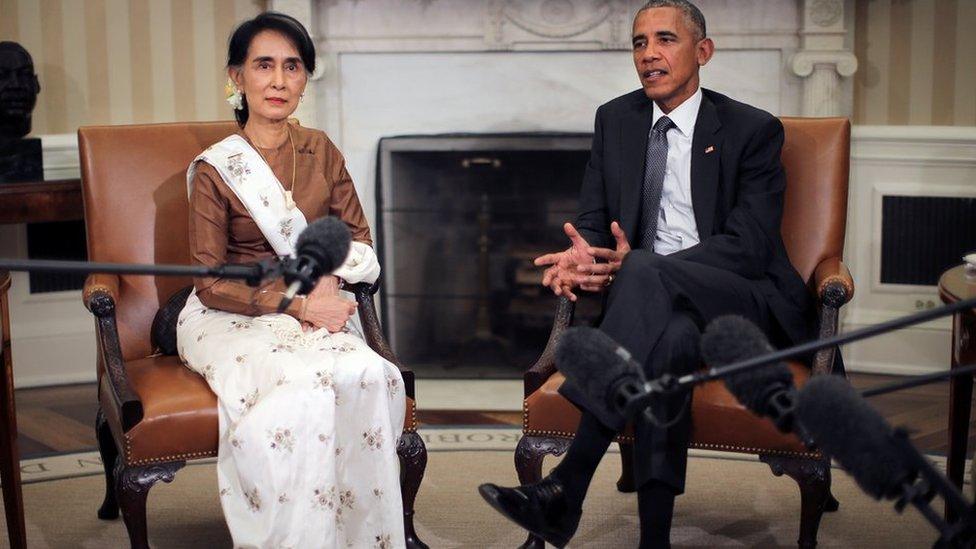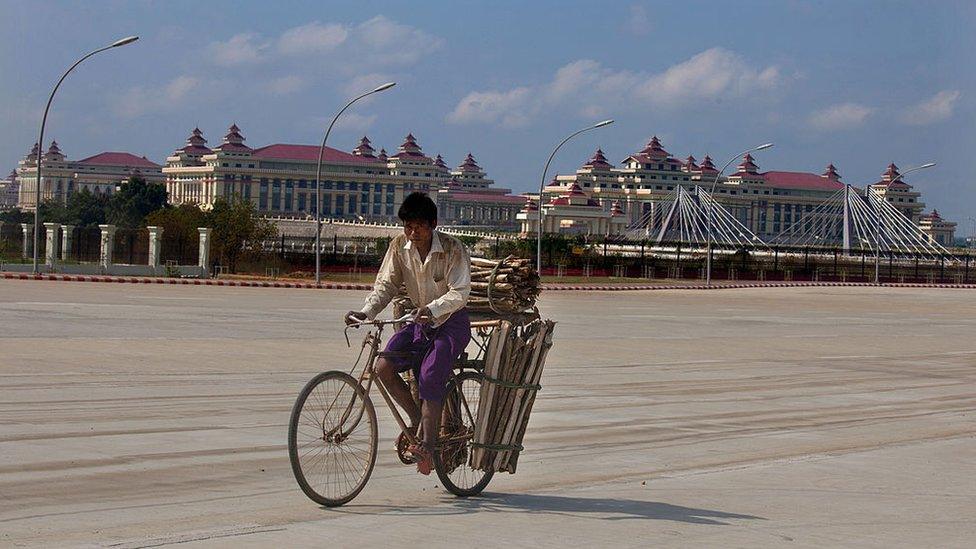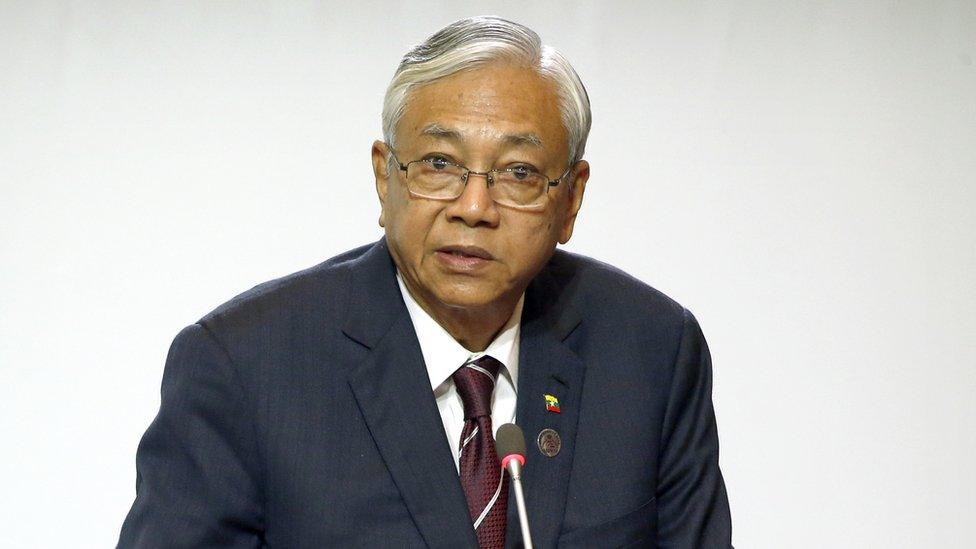Surprise as US ends Myanmar economic sanctions
- Published

The US decision to lift all of its remaining economic sanctions on Myanmar, also known as Burma, has surprised many.
To understand the shock, let me first present three key facts.
First, US President Barack Obama could not have taken this decision without Aung San Suu Kyi's approval. She is just too influential.
Secondly, Ms Suu Kyi has long defended sanctions as a way to keep pressure on the powerful Burmese military.
Thirdly, despite Ms Suu Kyi's rise to power, the Burmese army has shown little sign of stepping back from political life or allowing the country's undemocratic constitution to be changed.
So why then has Ms Suu Kyi removed the last remaining stick with which to prod the military?
"It is the right thing to do in order to ensure that the people of Burma see rewards from a new way of doing business and a new government," President Obama said, as he announced the decision.
But there are a few problems with that.
First, most of the US sanctions were targeted - not aimed at the Burmese people but deliberately focused on key individuals and companies who supported the old military regime.

Myanmar's recently-built capital city, Naypyitaw
One hundred and eleven individuals and companies are on the soon-to-be-scrapped blacklist.
They are some of Myanmar's dodgiest characters.
Among them, men who gave the orders to fire on demonstrators and imprison activists and opposition leaders, including Ms Suu Kyi.
There are businesses that helped procure weapons and others that were dubiously awarded juicy contracts to build, among many things, Myanmar's empty capital, Naypyitaw.
In the upmarket bars of Yangon, also known as Rangoon, the generals and their families will be toasting President Obama.
Their crony businesses can now freely compete for US investment with cleaner, more ethical, companies.
For their part, American companies coming to Myanmar now have greater choice of partners and much fewer restrictions.
It will be easier for them to make money.
So how is Ms Suu Kyi explaining it?
In Washington, she said: "We think that the time has now come to remove all the sanctions that hurt us economically, because our country is in a position to open up to those who are interested in taking part in our economic enterprises."
So no real justification of the change to her position - perhaps she just feels it is time to move on.

Myanmar's President, Htin Kyaw
Ms Suu Kyi's critics will see the sanctions issue as further evidence she now cares about power, not principle.
The greater democracy and constitutional change that she once campaigned for are now accepted as distant goals.
Perhaps she thinks the time has come to reward the military for the progress that has been made, to consolidate the growing confluence between the former democracy campaigner and the generals.
There is another plausible explanation suggested to me by a Washington insider - one that explains Ms Suu Kyi's seemingly sudden change of heart.
I was told that, despite appearances, Ms Suu Kyi was not in full agreement with the decision, but had been left with little choice.
American sanctions on Myanmar are authorised under what is known as the National Emergencies Act.
In place since 1997, it rather bizarrely categorises the country as an "extraordinary threat" to US national security, giving the president emergency executive powers.
For obvious reasons, Ms Suu Kyi wanted the misleading act to be terminated but also thought some of the targeted sanctions, particularly on military companies, should remain.
But, according to my source, US officials told her it was all or nothing, and the historic decision was made to lift all sanctions.
Attempts to clarify whether Ms Suu Kyi had indeed had reservations went unanswered, both from the US and the Burmese sides.